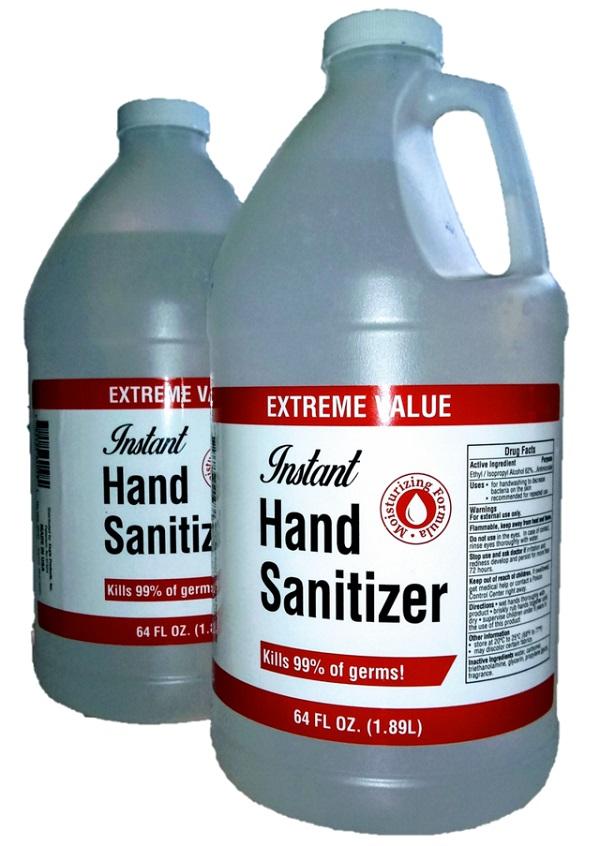In recent times, with the pandemic outbreak, before the olden times, hand sanitizers have become a staple in workplaces and homes, to keep our hands clean and reduce the spread of germs and bacteria. However, it’s important to understand that hand sanitizers can ignite or cause burns if not used properly.
Hand sanitizers contain high percentages of alcohol, which is flammable, and if they come into contact with an ignition source, they can cause a fire or explosion. This can happen if hand sanitizers are stored or used near heat sources, open flames, or hot surfaces. For example, if a hand sanitizer is left near a stove, a spark from the stove can ignite the alcohol in the sanitizer, causing a fire. Therefore, it is important to store hand sanitizers in a cool, dry place, away from heat sources and open flames. It’s also important to keep hand sanitizers away from children and pets, as they can be easily ingested and mishandled.
When using hand sanitizers, it’s important to follow the instructions on the product label. This includes using the correct amount of product, ensuring that the hands are dry before applying the sanitizer, and avoiding contact with the skin or eyes. Additionally, it’s important to avoid smoking, eating, or drinking while using hand sanitizers, as this can increase the risk of a fire or explosion. For example, if a person lights a cigarette while using hand sanitizer, the flame from the cigarette can ignite the alcohol in the sanitizer, causing a fire. Therefore, it is important to be aware of the potential hazards and take necessary precautions while using hand sanitizers.
Hand sanitizers can cause serious burns if they come into contact with the skin or eyes, or if they’re ingested. The alcohol in hand sanitizers can cause skin irritation and dryness, and if it comes into contact with the eyes, it can cause serious eye irritation and even blindness. If a hand sanitizer is ingested, it can cause alcohol poisoning, which can be life-threatening. Therefore, if hand sanitizer comes into contact with the skin or eyes, it should be immediately washed off with water, and if ingested, medical attention should be sought immediately. Additionally, it’s important to keep hand sanitizers out of reach of children and pets, as they may not be aware of the potential hazards and may mishandle the product.
If hand sanitizer is exposed to heat or an ignition source, the area should be evacuated immediately, and the fire department should be called. Even small fires caused by hand sanitizers can quickly spread and cause significant damage. Therefore, it is important to be aware of the potential hazards and take immediate action if a fire or explosion occurs. This includes evacuating the area immediately and calling the fire department.
It is also important to note that alcohol-free hand sanitizers and sanitizing wipes are also available and can be used as an alternative to traditional hand sanitizers. These products are less flammable, and they do not pose the same fire and burn hazards. They are also less likely to cause skin irritation and dryness. It’s worth considering using these products as an alternative to traditional hand sanitizers to further reduce the risk of fire and burn hazards.
In conclusion, Hand sanitizers are an essential tool in preventing the spread of germs and bacteria, but it’s important to use them safely. Hand sanitizers can ignite or cause burns if not used properly, so it’s important to store them in a cool, dry place, away from heat sources and open flames, and to follow the instructions on the product label when using them. Additionally, it’s important to be aware of the potential hazards and take appropriate action if a hand sanitizer comes into contact with the skin or eyes, or if it’s ingested. By taking these precautions, we can keep ourselves and our surroundings safe from the risk of fire, burns and other injuries caused by hand sanitizers. Furthermore, it is also worth considering using alcohol-free hand sanitizers and sanitizing wipes as an alternative to traditional hand sanitizers to further reduce the risk of fire and burn hazards.
Image reference:
- https://commons.wikimedia.org/wiki/File:Instant_Hand_Sanitizer.png










